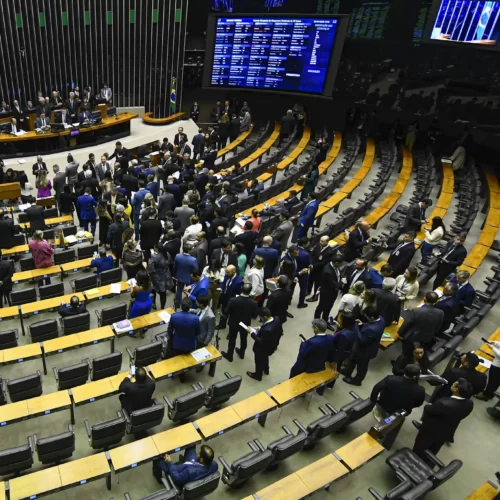“The Minister of the Environment, Ricardo Salles, fulfilled this Monday, at the 135th meeting of Conama, part of his promise to end environmental protection rules that, in his opinion, hinder the lives of businessmen and large agribusiness corporations. And, using the metaphor that the minister himself used during an April ministerial meeting, he ‘passed the cattle herd’ over some of these rules. During a meeting of the National Environment Council (Conama), on Monday (28), he removed the protection of about 1.6 million hectares of restingas [sandbanks] and mangroves across the country. These are areas of permanent preservation close to the Brazilian coast that arouse interest from the real estate sector and shrimp producers.“.
That was how El País Brasil summed up the 135ª Conama meeting, on September, 28.
Conama, a consultative and deliberative council on environmental policies, underwent profound changes right from the start of Ricardo Salles’ term. In May 2019, he reduced the number of council members from 96 to 23. In the distribution of seats, which now is made by lot and no longer nomination or voting, the minister put the majority of votes in the hands of the federal government (43%) and the productive sectors (8%). NGOs, unions, social and indigenous movements, universities and representatives of states and municipalities lost space and ended up having only 49% of the votes in the new composition.
Taking advantage of the control over Conama in the meeting, the government:
– Repealed resolutions 302 and 303, from 2002, which established protection of mangroves and sandbanks, fundamental areas for the balance and preservation of biodiversity; with the argument that the Forest Code already regulates the occupation of these areas. The maneuver removes the only licensing instruments to benefit the real estate/tourism and shrimp farmers;
– Revoked resolution 284/2001, ending federal rules for environmental licensing of agricultural irrigation projects and meeting the demands of part of the agribusiness;
– Approved a new rule allowing the incineration in industrial ovens of packaging and remnants of pesticides for the production of cement, eliminating the regulations that defined adequate environmental disposal of the material.
Before the meeting, environmentalists, congressmen and federal prosecutors asked for the removal of those items from the agenda; a lawsuit called for the suspension of the reunion, without success. UOL pointed out that “the result clearly exposes the way the government started to control an organ that, due to its mission and history, has always had a technical and independent composition”.
As soon as the Minister revoked those regulations, members of the parliament went to court to overturn the decisions and filed a suit at the Supreme Federal Court (STF) and in the Chamber of Deputies. On the 29th, the Federal Court of Rio suspended the 135th meeting of Conama and all its acts and revocations. The injunction of the 23rd Federal Criminal Court upheld a request for popular action against Conama’s measures. The Federal Attorney General appealed and a federal court overturned the injunction on October 2nd. On October 1st, Justice Rosa Weber, from the STF, gave minister Salles a 48-hour period to provide information about Conama’s decisions.
Sources:

















